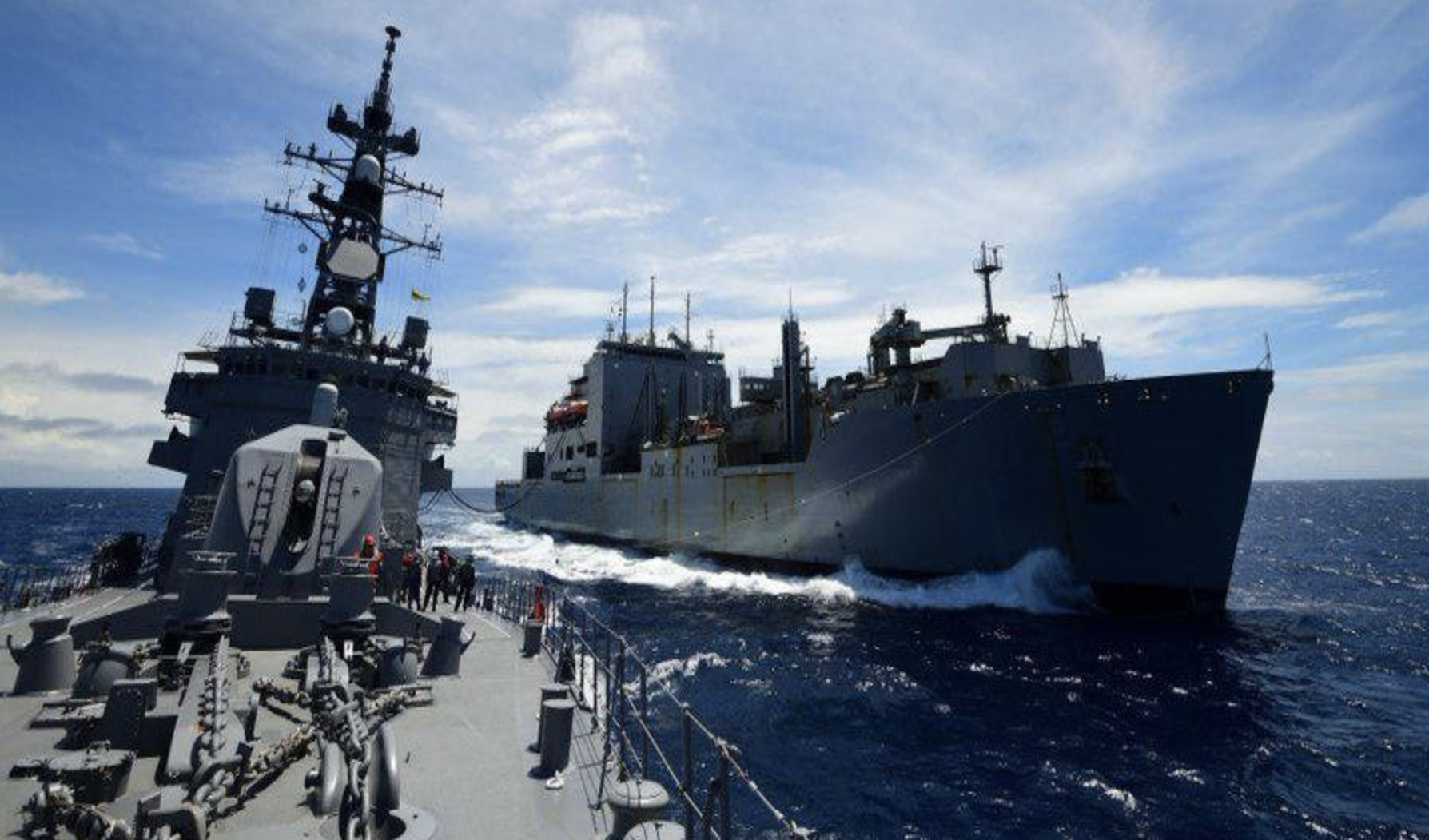AIDAN SMITH-FAGAN WRITES — Japan’s Defense and Deputy Prime Ministers have both recently affirmed their government’s willingness to defend Taiwan in the event of an invasion from the Chinese mainland. Those statements also coincided with a recent report from the Financial Times detailing joint US-Japanese military exercises in the hotly contested South and East China Seas.
The ministers’ statements were likely a response to China increasing the intensity of its military aircraft incursions in Taiwan-controlled airspace. “If China attacks Taiwan, Japan would be involved as Taiwan and Okinawa are very close,” says Professor Tetsuo Kotani of the Japanese Institute of International Affairs. Since China and Japan both claim the Senkaku Islands on Taiwan’s coast, a Chinese invasion would also entail an attack on Japanese territory. “In addition, to prevent US military intervention, China would also attack Japan as it hosts the US military.” Kotani notes that “as the Chinese military is actively pressuring Taiwan, Tokyo attempts to enhance deterrence with Washington to discourage Beijing’s ambitious goal.”
China – which has claimed Taiwan part of its territory since the end of its 1949 civil war – rebuked the Japanese defense commitments. “China deplores the erroneous remarks,” said Chinese Foreign Ministry Spokesman Wang Wenbin. Condemning Defense Minister Yasuhide Nakayama’s claim that Japan needs to “wake up” and defend Taiwan “as a democratic country,” Wang continued, “Taiwan is an inalienable part of China’s sacred territory […] China must and will be reunified. This is an unstoppable historical trend.”
Deepening cooperation between Japan and the US in the South China Sea bolsters America’s waning ability to deter an invasion from China. In recent US simulations of a war in the Taiwan Strait, the US and Taiwan often fail to deter an invasion from the mainland. Although America has no official defense treaty (or even diplomatic relations) with Taiwan, the US is the island’s largest supplier of foreign arms and considers anything other than a peaceful resolution of the Taiwan issue illegitimate and “a threat to the peace and security of the Western Pacific area and of grave concern to the United States.”
American wargames often intentionally put stress on the capacity of the US military, “so it’s not a surprise US opponents perform well in these scenarios,” says Sale Lilly, a former US Naval officer who now studies China and naval warfare at the RAND Corporation. Still, US failures in recent simulations do highlight how “for the better part of two decades the US military has been oriented toward conflicts in mostly landlocked regions of the Middle East and Southwest Asia.” Preoccupied with the war on terror, the US’ once unquestionable naval dominance is beginning to slip, leaving the safety of Taiwan uncertain.
But stronger commitments from Japan could reinforce America’s credibility as a deterrent to a Chinese invasion. “I think it could strengthen or enhance the perception that Japan, the U.S. and other nations have the capacity to collectively act to defend their mutual interests in the Pacific,” Lilly told me. “Adding to the possible number opponents in a Pacific conflict […] makes Japanese defense forces very relevant.”
So far, Chinese President Xi Jinping has shown no signs of wavering on the Taiwan issue. At a recent speech marking the Chinese Communist Party’s 100th anniversary, Xi told the crowd that China “must take resolute action to utterly defeat any attempt toward ‘Taiwan independence,’” and that the China remains firmly committed to defending its “national sovereignty and territorial integrity.” In the same speech, Xi said that the Chinese people “will never allow any foreign force to bully, oppress, or subjugate us.”
Whether or not Japan and the US can dissuade China from invading Taiwan remains an open question. According to Lilly, closer cooperation and stronger statements from the US’ Pacific allies might backfire. He notes that “deterrence measures are unpredictable, so the extent that posturing by one side is seen as provocation to another isn’t clear.” If China reads allied military exercises as an immediate threat to its safety, that could trigger an even tougher escalation.
Deterrence only works if both sides share a mutual and stable understanding of each other. And stability and mutual understanding are far from abundant in present US-China diplomacy. Absent stable US-Japan-China relations, the future of Taiwan remains hanging in the balance between three of the Pacific’s most powerful militaries.

